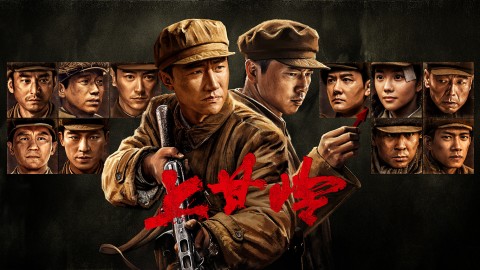Episode 24 recap: Li Zhang Huan's Drought-Resistant Rice Research
Jeffrey arrives to confront Li Zhang Huan and his team, claiming they're infringing on his patent. He points to their contract, which specifies the use of his previous rice varieties. Li Zhang Huan counters that his team has developed a new strain and the contract only covers the older varieties.
Zheng Wei Long argues that their mission is to help the local farmers and they'll provide the technology for free, ultimately eliminating the need for Jeffrey's services. Li Zhang Huan emphasizes that his priority is protecting the farmers. Li Zhi Wei adds that Jeffrey's focus on exploitation rather than collaboration will hinder his growth, urging him to focus on developing the Bamarala market.
Jeffrey asserts his authority as the boss, dismissing Li Zhi Wei's advice. Li Zhi Wei clarifies that he was simply offering friendly advice. Li Zhang Huan assures everyone that he's found a solution to the technical challenges of the drought-resistant rice and is confident in their success. Nika and the others are relieved.
Li Zhang Huan is happy to see the two tribes reconcile. Li Qian Ping and Yu Jiang are about to get their marriage license. Yu Jiang, now committed to the mushroom grass project, decides to tell Li Qian Ping about his decision and asks for her support.
Li Qian Ping reveals that she already knew about Yu Jiang's plans and is fully supportive. Yu Jiang is overjoyed. Guo Chen and his team are making progress on their research into windbreak and sand-fixing grasses.
Nora returns to her home country and meets with Hugo. He asks if she'll be returning to Singapore, but she explains that her classes are over and she no longer needs to go back. Hugo is happy to hear this.
Hugo mentions seeing Nora's name on a poster in the capital city, and she explains that she'll be participating in an upcoming event. She's planning to move to the capital and asks Hugo if he wants to join her. Hugo declines, stating that he won't stand in the way of her pursuing a better life but needs to stay and help his people.
Li Zhang Huan and his team were finally able to return home, happily packing their belongings. Zhao Qi Feng arrived and informed them that while the foreign aid project was ending, the Ministry of Foreign Affairs hoped they would leave a technical expert behind to address ongoing issues in the region. Li Zhang Huan and his team were surprised.
Li Zhi Wei spoke to Zhao Qi Feng, suggesting that they weren't hoping for his father to stay. He reassured Zhao Qi Feng that they understood Li Zhang Huan's important responsibilities back home and wouldn't ask him to stay. Li Zhi Wei inquired about Zhao Qi Feng's plans, and he promised to call daily and return to China immediately whenever he had time off.
Li Zhang Huan called Li Han over and explained that only he and Zheng Wei Long had the expertise in mushroom grass and drought-resistant rice. Since Zheng Wei Long had a family, Li Zhang Huan asked Li Han to stay behind. Li Han agreed. Li Zhi Wei shared his relationship with Dr. Xu with Zheng Wei Long.
Zheng Wei Long learned that Dr. Xu was about to leave for Rwanda, while he was returning to China. Li Zhi Wei informed him that they were launching a new mushroom grass aid project in Rwanda and wanted him to lead it. Zheng Wei Long was thrilled and rushed to find Dr. Xu. He confessed that he regretted letting her leave last time and wished he had kept her around.
Zheng Wei Long confessed his feelings for Dr. Xu, and she reciprocated, agreeing to stay. As Li Zhang Huan and his team prepared to leave, everyone sang and danced to bid them farewell.
In 1983, China began researching the use of grasses as a substitute for wood in cultivating edible and medicinal mushrooms like shiitake, black fungus, and lingzhi. After years of research, they developed the mushroom grass technology, creating a new field of scientific research and industrial development.
Since 1995, the Chinese government has shared mushroom grass technology with the world through international training programs and aid in building mushroom grass technology training and demonstration centers. The technology has been disseminated to 106 countries. (End of Series)



Comments(Episode 24)